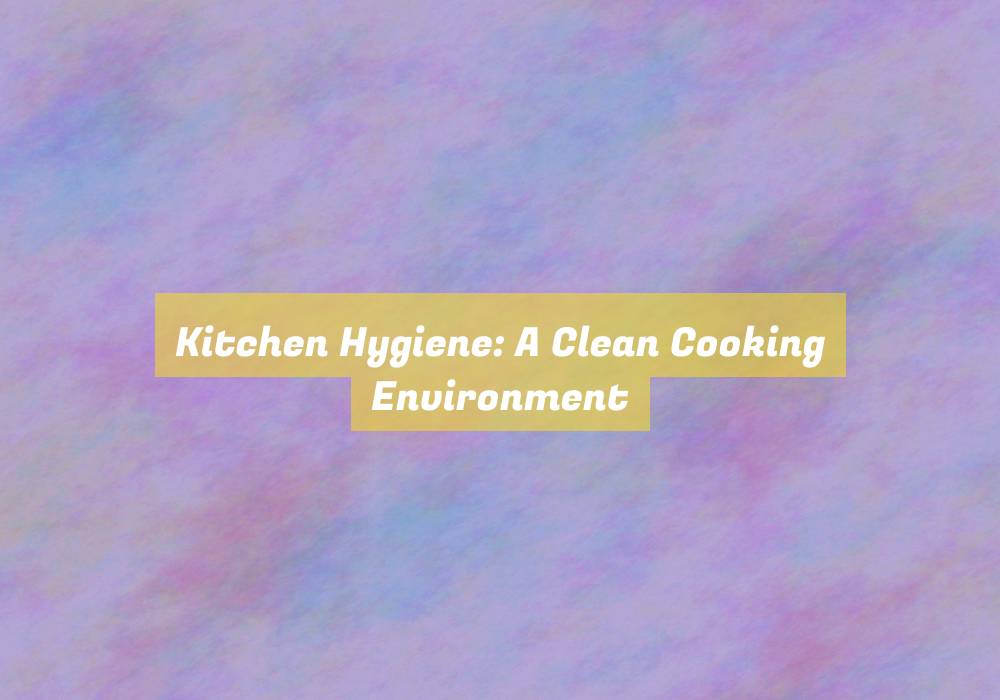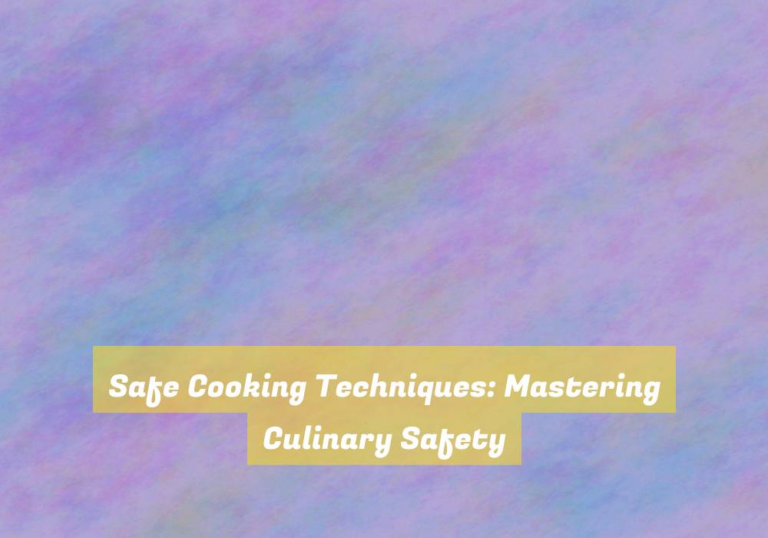Kitchen Hygiene: A Clean Cooking Environment
Keeping your kitchen clean and hygienic is crucial for creating a safe and sanitary cooking space. From handling raw meat to wiping down countertops, maintaining a meticulous standard of cleanliness is essential to ensure the health and well-being of everyone who enjoys your culinary creations.
But the benefits of a spotless kitchen go beyond just hygiene G?? it also contributes to a more pleasant and organized cooking environment. So, how exactly can you achieve and maintain a pristine kitchen?
LetG??s explore the effective hygiene practices and the perks of a clean cooking space.
Importance of Kitchen Hygiene
Ensuring kitchen hygiene is crucial for preventing foodborne illnesses and maintaining a healthy environment for food preparation. By keeping your kitchen clean, you can significantly reduce the risk of contamination and food poisoning.
Regularly wash your hands with soap and warm water before handling food, and especially after handling raw meat, poultry, or seafood. Clean and sanitize all food preparation surfaces, cutting boards, and utensils to prevent cross-contamination between different foods.
Additionally, make sure to wash fruits and vegetables thoroughly before consuming or cooking them. Proper storage of food is also essential. Keep perishable items refrigerated at the appropriate temperature and promptly store leftovers in airtight containers.
Regularly clean out your refrigerator and pantry to discard expired or spoiled food items. By adhering to these practices, you can create a safe and hygienic kitchen environment, promoting the health and well-being of everyone who enjoys the meals prepared in your kitchen.
Effective Hygiene Practices
To maintain effective kitchen hygiene, always thoroughly clean and sanitize food preparation surfaces and utensils before and after each use. Use hot, soapy water to wash the surfaces and utensils, and then rinse them thoroughly. Consider using a sanitizing solution or bleach to further disinfect these items.
Additionally, ensure that raw meat, poultry, and seafood are kept separate from other foods to prevent cross-contamination. Use different cutting boards and utensils for raw and cooked foods.
Regularly wash dishcloths, sponges, and towels in hot water and replace them often to prevent the spread of bacteria. Keep your refrigerator clean and organized, disposing of expired or spoiled food promptly. Store food in airtight containers to prevent the spread of odors and potential bacteria.
Regularly clean and sanitize kitchen appliances such as blenders, mixers, and toasters.
Lastly, wash your hands frequently, especially after handling raw meat, using the restroom, or touching your face. These practices will help maintain a clean and safe cooking environment.
Benefits of a Clean Kitchen
Maintaining effective kitchen hygiene not only ensures the safety of your food but also brings about several benefits for you and your family.
A clean kitchen reduces the risk of foodborne illnesses, keeping your loved ones healthy. By regularly cleaning surfaces, utensils, and appliances, you minimize the chances of cross-contamination and the spread of bacteria.
Additionally, a tidy kitchen creates a pleasant and inviting space for meal preparation and dining. It can also save you time and money by preventing the need for extensive deep cleaning or the replacement of kitchen items due to neglect.
When your kitchen is organized and free of clutter, you can easily locate ingredients and cooking tools, making the cooking process more efficient. Furthermore, a clean kitchen promotes a positive mindset and reduces stress, as it eliminates the anxiety of working in a messy environment.
Maintaining a Pleasant Cooking Space
For a pleasant cooking space, keep surfaces clean and uncluttered to create an inviting environment for meal preparation and dining. Wipe down countertops, stovetops, and tables regularly to prevent the buildup of grease, food particles, and bacteria. Use a mild detergent or a vinegar and water solution for effective cleaning.
Declutter by organizing utensils, pots, and pans in designated storage areas to free up workspace and make it easier to find what you need. Additionally, consider incorporating indoor plants or fresh flowers to add a touch of nature and freshness to your cooking space.
Maintain good ventilation to keep the air fresh and free of lingering cooking odors. Use exhaust fans or open windows to let in fresh air and remove cooking fumes. Replace kitchen sponges and dishcloths regularly as they can harbor harmful bacteria and contribute to unpleasant odors.
Conclusion
In conclusion, keeping your kitchen clean and hygienic is crucial for your health and well-being.
By implementing effective hygiene practices and maintaining a clean cooking environment, you can prevent foodborne illnesses and create a pleasant space for preparing meals.
So, take the time to regularly clean and sanitize your kitchen to ensure a safe and enjoyable cooking experience.
Your body and taste buds will thank you!







I truly appreciate your insights on the significance of kitchen hygiene. It’s interesting how the kitchen, often seen merely as a functional space, actually serves as the heart of our homes, impacting not only our health but also our overall well-being. I’ve found that a clean kitchen plays a pivotal role not just in food safety, but also in fostering a sense of calm and creativity while cooking.
You’ve touched on something truly profound regarding the kitchen. While it’s often seen merely as a space to prepare food, the emotional and psychological impact it has on our lives is really something special. A clean kitchen doesn’t just contribute to food safety; it creates an environment where we can connect with our creativity and with each other.
I totally resonate with your emphasis on kitchen hygiene! It’s fascinating how a clean space can transform not just the safety of our meals, but also our overall cooking experience. I’ve found that beyond just the basic hygiene practices, incorporating a routine—like a quick daily reset of surfaces and an end-of-day deep clean—makes a huge difference in maintaining that pristine environment you mentioned.